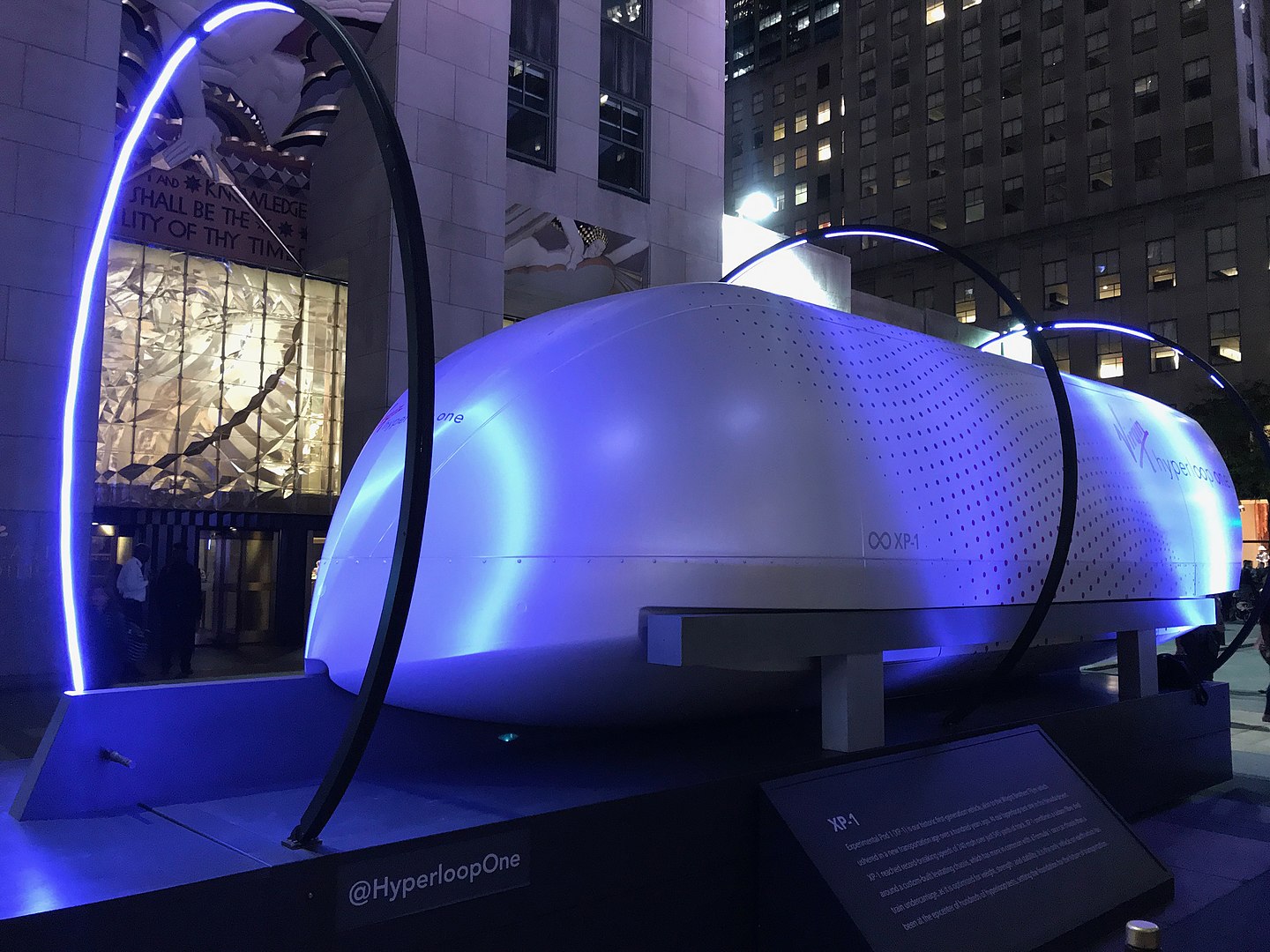 EMERGING TECH
EMERGING TECH
 EMERGING TECH
EMERGING TECH
 EMERGING TECH
EMERGING TECH
After years of attempting to reinvent the nature of transit with a futuristic tube-based concept that would bring passengers and freight between locations at high speed, the startup Hyperloop One is shuttering its doors on Dec. 31.
A report from Bloomberg, citing people familiar with the matter, stated the company is laying off employees and attempting to sell its remaining assets, including the remains of its test track built in Nevada.
Although multiple companies explored hyperloop technology, Hyperloop One settled on a specific system: Imagine capsules gliding at airline speeds inside low-pressure tubes suspended on pressurized gas and propelled using linear electric motors. The concept would allow the vehicles within the tubes to reach speeds up to 760 miles per hour.
For its part, the company had been successful in attracting investors and raised more than $450 million since its founding in 2014, with the first full-scale test of its system at its test site in Las Vegas in 2017. The company went on to conduct its first human test in 2020 at a speed of 107 miles per hour.
Backed by Richard Branson’s Virgin Group, the company took the name and became Virgin Hyperloop One in 2017, and finally Virgin Hyperloop. However, the company went back to the original name after Hyperloop One decided to abandon human passengers as a mode of transport and switch to freight-only.
When the company announced its decision to focus on freight, instead of human travel, the company laid off more than 100 employees, about half its staff at the time, reported the Financial Times. Then a second wave of layoffs hit the company in December 2022, focusing on the company’s Los Angeles and Las Vegas teams.
Even as the company was working to build out its technology and research, critics noted that Hyperloop would have massive logistical problems even before it attempted to leap regulatory hurdles.
Billionaire entrepreneur Elon Musk brought the idea to the world’s attention with a white paper outlining the potential technology, but the concept brought on experts who noted it could be unfeasible for human travel because of its sheer cost. There were also concerns about safety for passengers, such as the potential for explosive pressurization and structural failures, and infrastructure issues that face roadways, such as carving the landscape to make way for tubes or putting them through cities, because they can’t easily bend like roads can.
“There are several things in favor of the Hyperloop,” physicist Tom Hartsfield wrote in an article on Big Think. “It will be a much faster way to travel, will greatly reduce the emissions associated with transportation, and undeniably has an intangible ‘coolness factor.’ But the cons are considerable, with safety and cost being the most pressing.”
Certainly, the concept has been touted throughout the history of science fiction and the idea of ultra-fast railways has enamored audiences and businesses. Multiple hyperloop companies have emerged and are at different stages of development, such as European hyperloop tech company Hardt Hyperloop and Swisspod Technologies in Switzerland. However, no hyperloop technology companies have built any large-scale working projects even after years of research and development projects.
Support our mission to keep content open and free by engaging with theCUBE community. Join theCUBE’s Alumni Trust Network, where technology leaders connect, share intelligence and create opportunities.
Founded by tech visionaries John Furrier and Dave Vellante, SiliconANGLE Media has built a dynamic ecosystem of industry-leading digital media brands that reach 15+ million elite tech professionals. Our new proprietary theCUBE AI Video Cloud is breaking ground in audience interaction, leveraging theCUBEai.com neural network to help technology companies make data-driven decisions and stay at the forefront of industry conversations.